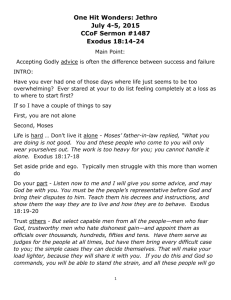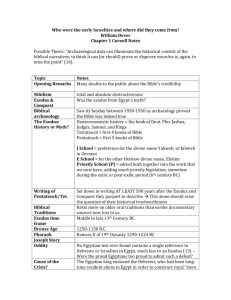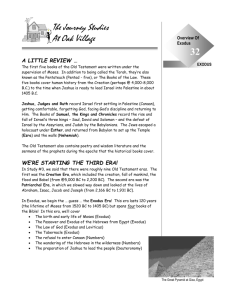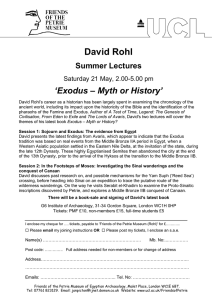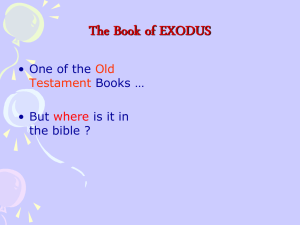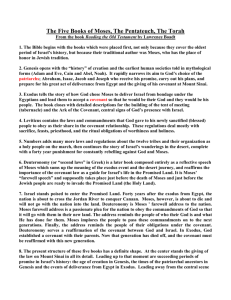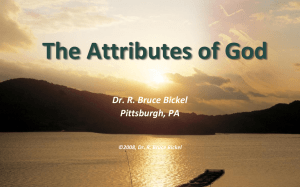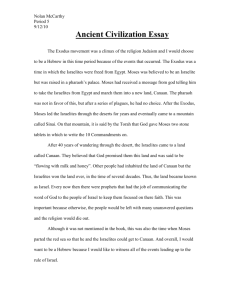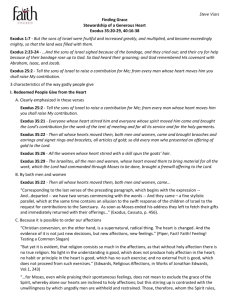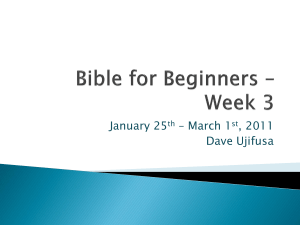Reminders of Blessings
advertisement
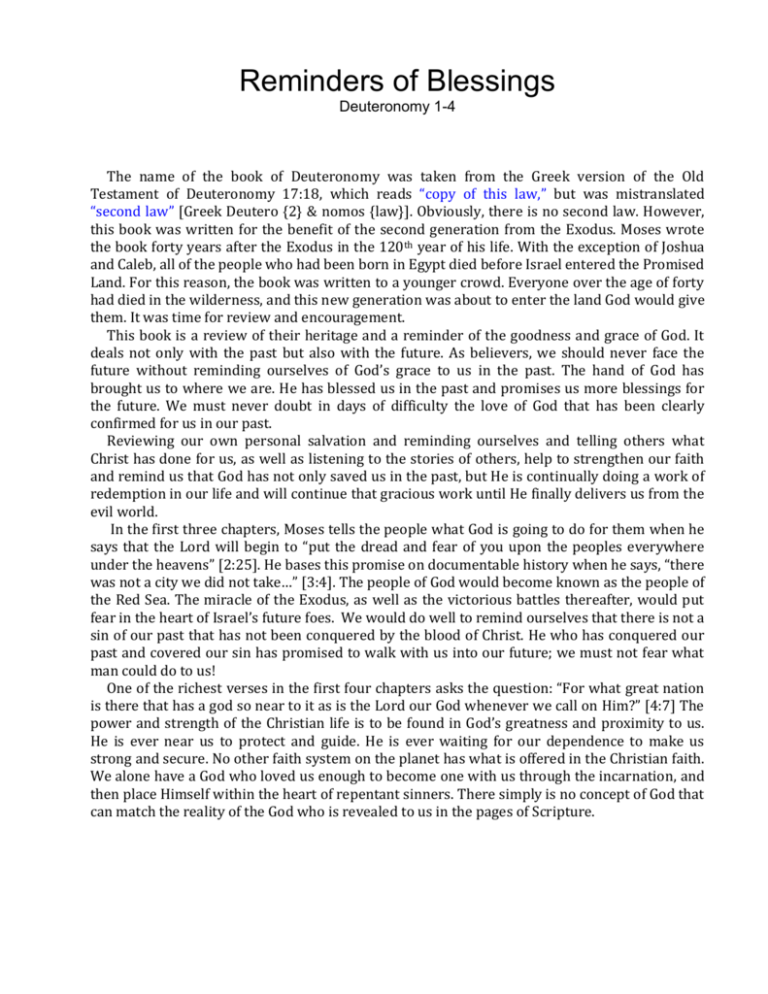
Reminders of Blessings
Deuteronomy 1-4
The name of the book of Deuteronomy was taken from the Greek version of the Old
Testament of Deuteronomy 17:18, which reads “copy of this law,” but was mistranslated
“second law” [Greek Deutero {2} & nomos {law}]. Obviously, there is no second law. However,
this book was written for the benefit of the second generation from the Exodus. Moses wrote
the book forty years after the Exodus in the 120th year of his life. With the exception of Joshua
and Caleb, all of the people who had been born in Egypt died before Israel entered the Promised
Land. For this reason, the book was written to a younger crowd. Everyone over the age of forty
had died in the wilderness, and this new generation was about to enter the land God would give
them. It was time for review and encouragement.
This book is a review of their heritage and a reminder of the goodness and grace of God. It
deals not only with the past but also with the future. As believers, we should never face the
future without reminding ourselves of God’s grace to us in the past. The hand of God has
brought us to where we are. He has blessed us in the past and promises us more blessings for
the future. We must never doubt in days of difficulty the love of God that has been clearly
confirmed for us in our past.
Reviewing our own personal salvation and reminding ourselves and telling others what
Christ has done for us, as well as listening to the stories of others, help to strengthen our faith
and remind us that God has not only saved us in the past, but He is continually doing a work of
redemption in our life and will continue that gracious work until He finally delivers us from the
evil world.
In the first three chapters, Moses tells the people what God is going to do for them when he
says that the Lord will begin to “put the dread and fear of you upon the peoples everywhere
under the heavens” [2:25]. He bases this promise on documentable history when he says, “there
was not a city we did not take…” [3:4]. The people of God would become known as the people of
the Red Sea. The miracle of the Exodus, as well as the victorious battles thereafter, would put
fear in the heart of Israel’s future foes. We would do well to remind ourselves that there is not a
sin of our past that has not been conquered by the blood of Christ. He who has conquered our
past and covered our sin has promised to walk with us into our future; we must not fear what
man could do to us!
One of the richest verses in the first four chapters asks the question: “For what great nation
is there that has a god so near to it as is the Lord our God whenever we call on Him?” [4:7] The
power and strength of the Christian life is to be found in God’s greatness and proximity to us.
He is ever near us to protect and guide. He is ever waiting for our dependence to make us
strong and secure. No other faith system on the planet has what is offered in the Christian faith.
We alone have a God who loved us enough to become one with us through the incarnation, and
then place Himself within the heart of repentant sinners. There simply is no concept of God that
can match the reality of the God who is revealed to us in the pages of Scripture.
1. As God blessed the nation of Israel, what did Moses learn and how did he learn
it? 1:11-15 [compare Ex. 18:17-27]
Deuteronomy 1:11-15
Exodus 18:17-27
2. How would you summarize the people’s problem that angered God? 1:22-36
3. Why couldn’t Moses go into the Promised Land? 1:37 [compare Ex.20:8-12]
Deuteronomy 1:37
Numbers 20:8-12
4.
Why wouldn’t the king of Heshbon let the people of Israel pass? 2:30,31
[compare Exodus 7:13,22; 8:15,19,32; 9:12]
Deuteronomy 2:30-31
Exodus 7:13
Exodus 7:22
Exodus 8:15
Exodus 8:19
Exodus 8:32
Exodus 9:12
5. If God fights our battles for us, then what is the cause and solution for fear?
3:22
6. Why did Moses go to the top of Pisgah? 3:23-29
7. What conditional promise is given in 4:1-4, and does this illustrate salvation?
8. Is there any parallel in our world to the danger warned against in 4:9-20?
9. Which of the two attributes of God mentioned in 4:23-31 is often forgotten today
and why?
10. What message about God and His dealings with man is found in 4:32-40?
